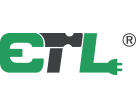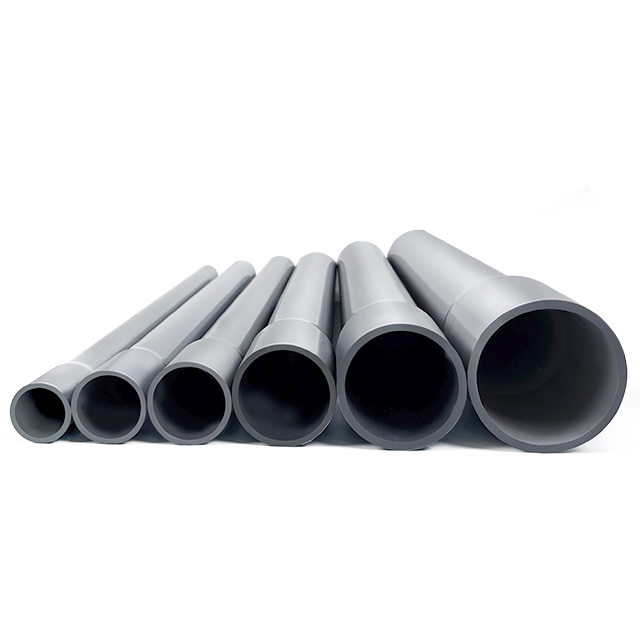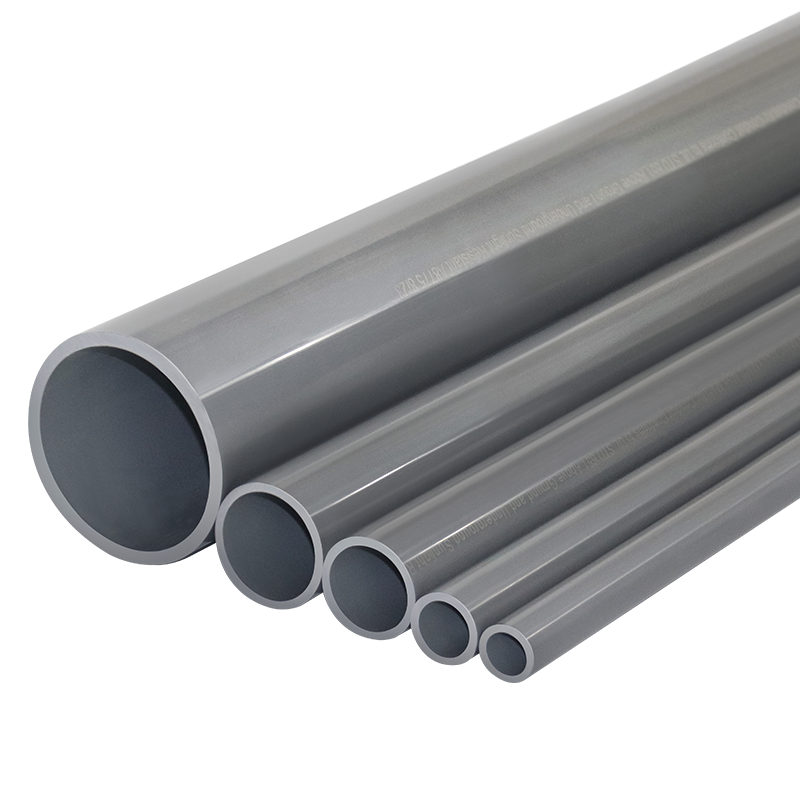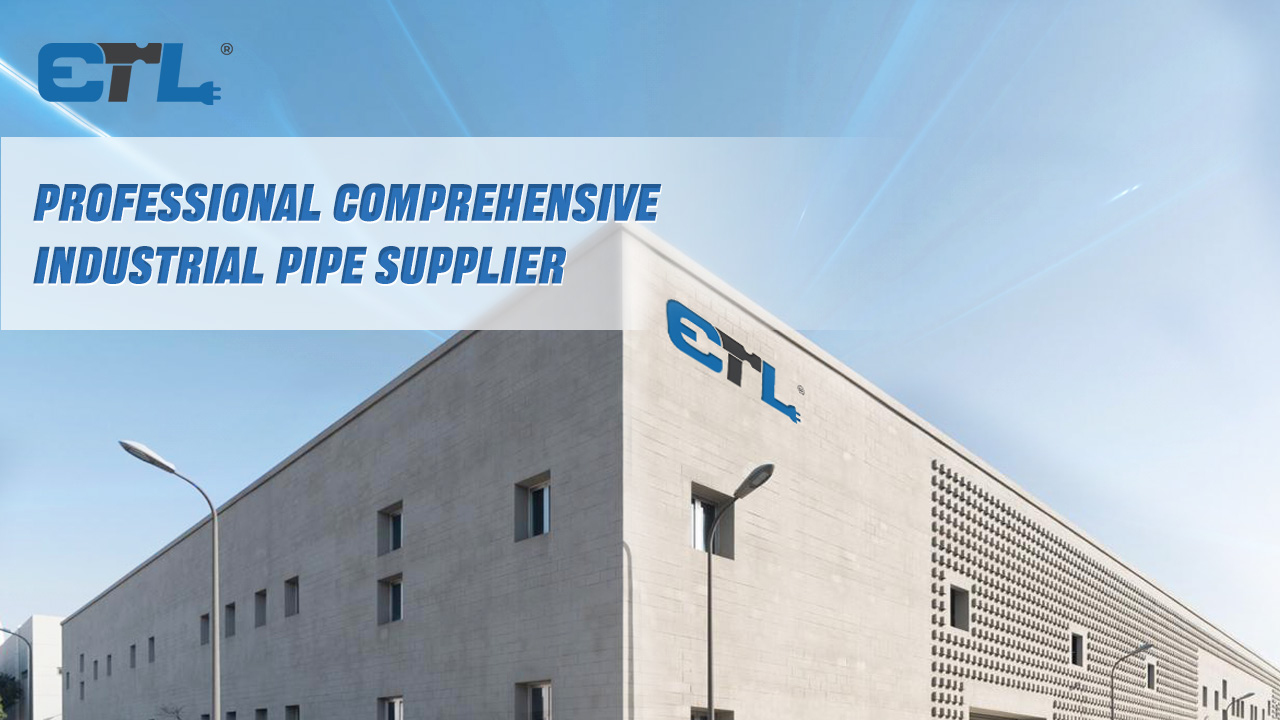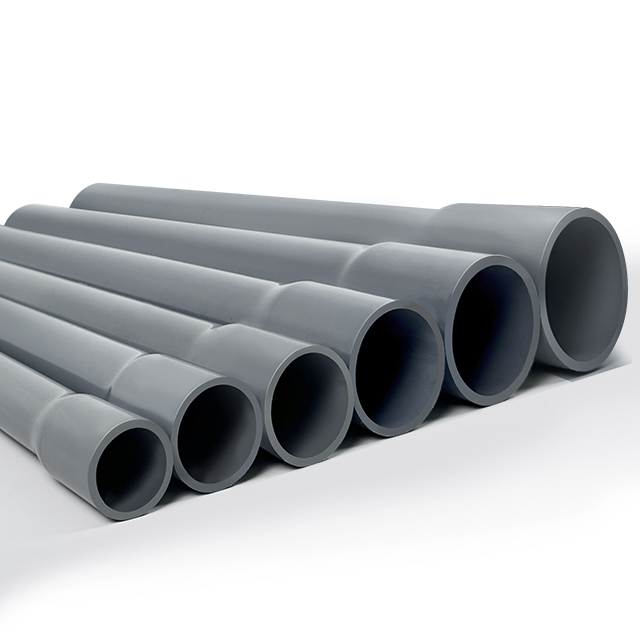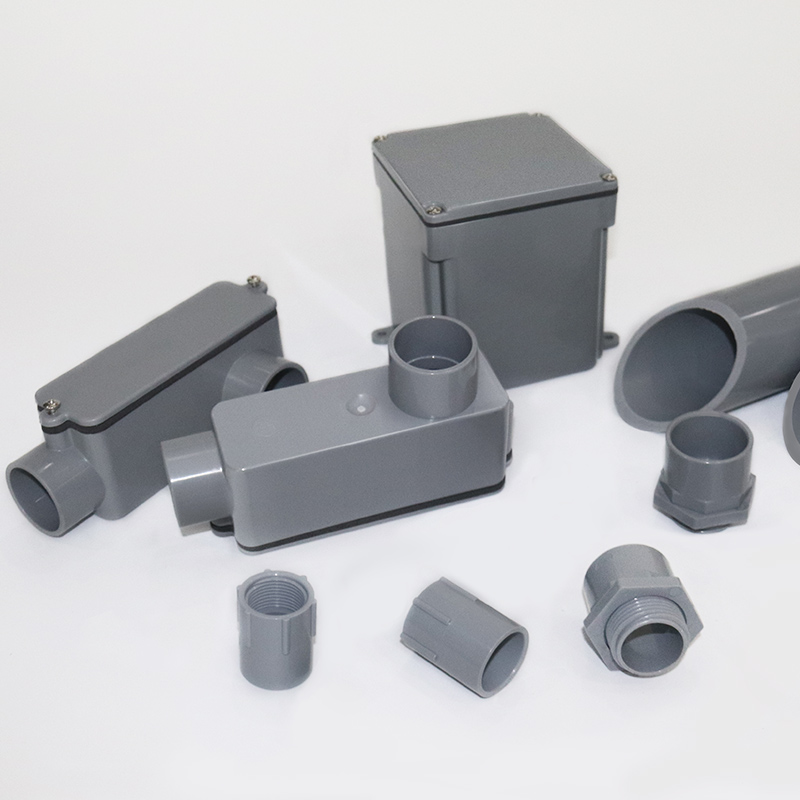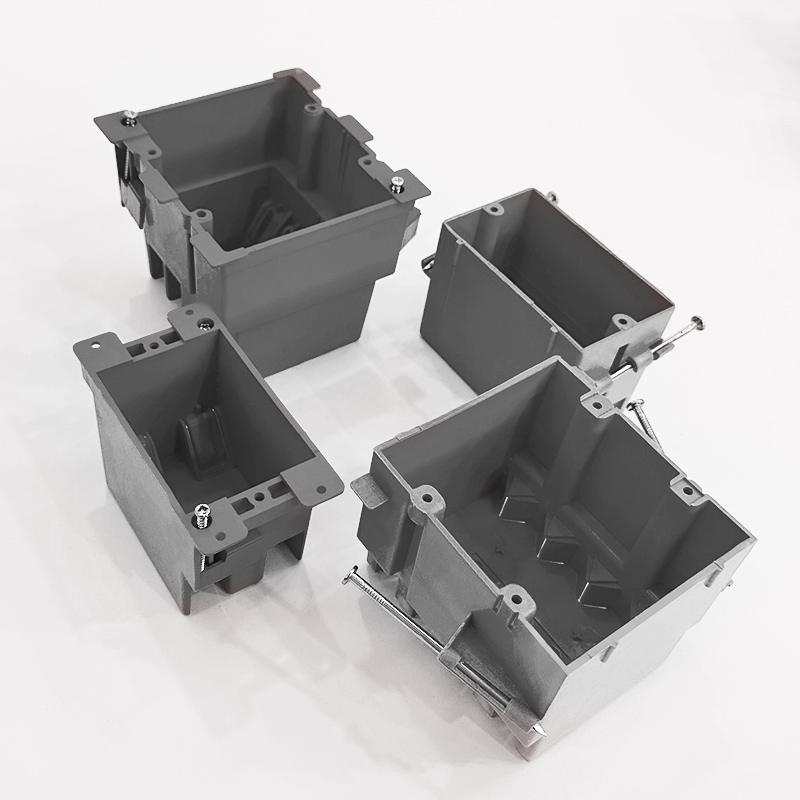Rigid PVC (Polyvinyl Chloride) conduit is an essential component in modern electrical installations, providing a lightweight, durable, and corrosion-resistant solution for protecting electrical wiring. Understanding the different types of rigid PVC conduit can help you select the best option for your specific needs.
Schedule 40 PVC Conduit (SCH40 PVC Conduit)
SCH40 PVC conduit is the most commonly used type in electrical installations. It has a standard wall thickness that balances durability and flexibility, making it ideal for a wide range of applications.
Key Features
● Suitable for both aboveground and underground installations
● Frequently used in residential and commercial buildings
● Approved for installation inside walls, ceilings, and floors
● Provides a cost-effective solution for general electrical conduit needs
Schedule 80 PVC Conduit (SCH80 PVC Conduit)
When additional durability is required, SCH80 PVC conduit is the preferred choice. With thicker walls than SCH40 PVC conduit, it offers enhanced protection against mechanical impact and external damage. For buyers looking for a durable SCH80 PVC electrical conduit, ETL Depot provides SCH80 heavy-duty conduit solutions that ensure long-lasting performance in demanding conditions.
Key Features
● Designed for high-impact areas and industrial environments
● Suitable for outdoor and underground installations
● Often required by electrical codes in commercial and industrial projects
● Commonly used for electrical conduit in commercial buildings
ETL SCH40&SCH80 PVC Rigid Conduit
Encased Burial (EB) PVC Conduit
EB PVC conduit is specifically designed for direct burial applications, typically encased in concrete for added protection. This type of PVC conduit for electrical systems is ideal for infrastructure projects, including highways, bridges, and utility installations.
Key Features
● Lightweight yet strong enough to handle underground applications
● Provides excellent protection for underground wiring
● Used in applications requiring conduit encasement in concrete
Direct Burial (DB) PVC Conduit
Unlike EB PVC conduit, DB PVC conduit is designed for direct burial without additional encasement. It is used for underground electrical wiring, offering a reliable solution for large-scale electrical distribution projects.
Key Features
● Engineered for PVC conduit installation underground
● Eliminates the need for extra protective layers
● Commonly used in power and telecommunication applications
DB60 Rigid PVC Electrial Conduits Pipe
PVC Coated Conduit
This type of heavy-duty PVC conduit features a metal base covered with a PVC coating, offering extra protection against corrosion and extreme environmental conditions. It is commonly used in chemical plants, marine environments, and high-moisture areas.
Key Features
● Provides superior resistance to harsh chemicals and moisture
● Ideal for industries that require enhanced durability
● Suitable for PVC conduit for industrial use
Flexible PVC Conduit
For installations requiring maneuverability, flexible PVC conduit provides a semi-rigid alternative that can be bent and shaped as needed. This makes it ideal for tight spaces where standard rigid conduit cannot be easily installed.
Key Features
● Suitable for complex installations in restricted spaces
● Used in residential and commercial electrical wiring
● Allows for easier routing of electrical cables
High-Impact PVC Conduit
For extreme conditions, high-impact PVC conduit is formulated to withstand severe weather and mechanical stress. This type of fire-resistant PVC conduit is commonly used in outdoor and industrial environments.
Key Features
● Designed for high-impact resistance and fire safety
● Commonly used in industrial applications with heavy machinery
● Ideal for electrical wiring conduits in demanding environments
Comparison of Different Types of Rigid PVC Conduit
|
Type |
Wall Thickness & Strength |
Key Features |
Common Applications |
|
SCH40 PVC Conduit |
Standard thickness |
Cost-effective, widely used, suitable for indoor/outdoor use |
Residential & commercial wiring |
|
SCH80 PVC Conduit |
Thicker, high durability |
Enhanced impact resistance, required in industrial settings |
Industrial & high-risk areas |
|
Encased Burial (EB) |
Lighter than SCH40 & SCH80 |
Designed for underground use with concrete encasement |
Infrastructure projects (bridges, roads) |
|
Direct Burial (DB) |
Similar to EB but stronger |
Can be buried directly without extra encasement |
Underground electrical systems |
|
PVC Coated Conduit |
Metal conduit with PVC layer |
Corrosion-resistant, suitable for extreme environments |
Chemical plants, marine applications |
|
Flexible PVC Conduit |
Semi-rigid, bendable |
Ideal for tight spaces and complex installations |
Residential, commercial buildings |
|
High-Impact PVC Conduit |
Extra-durable |
Withstands mechanical and weather-related stress |
Outdoor & industrial use |
Choosing the Right Rigid PVC Conduit
Selecting the right ETL rigid PVC conduit depends on the installation environment, durability needs, and compliance requirements:
Indoor vs. Outdoor: SCH40 PVC conduit is ideal for general use, while SCH80 heavy-duty conduit offers extra durability for exposed areas.
Aboveground vs. Underground: SCH40 PVC conduit suits aboveground wiring, while Direct Burial (DB) PVC conduit and Encased Burial (EB) PVC conduit are best for underground installations.
High-Impact & Corrosive Environments: SCH80 PVC conduit, high-impact PVC conduit, or PVC coated conduit provide extra protection in demanding settings.
Residential vs. Commercial & Industrial: SCH40 PVC conduit is common for PVC conduit for residential wiring, while SCH80 heavy-duty conduit is preferred for PVC conduit for industrial use and electrical conduit for commercial buildings.
For premium PVC rigid conduit wholesale, ETL Depot offers durable, compliant solutions for all electrical installations.
Conclusion
Rigid PVC conduit plays a crucial role in protecting electrical wiring in various applications, from homes and commercial buildings to large-scale industrial projects. Whether you need PVC conduit installation for a residential property or a fire-resistant PVC conduit for a high-risk environment, choosing the right conduit type ensures safety, efficiency, and compliance with industry standards.
As a trusted PVC conduit supplier, ETL Depot provides PVC rigid conduit wholesale tailored to the needs of electrical contractors and project managers worldwide. Contact us today to explore our full range of electrical conduit options.
